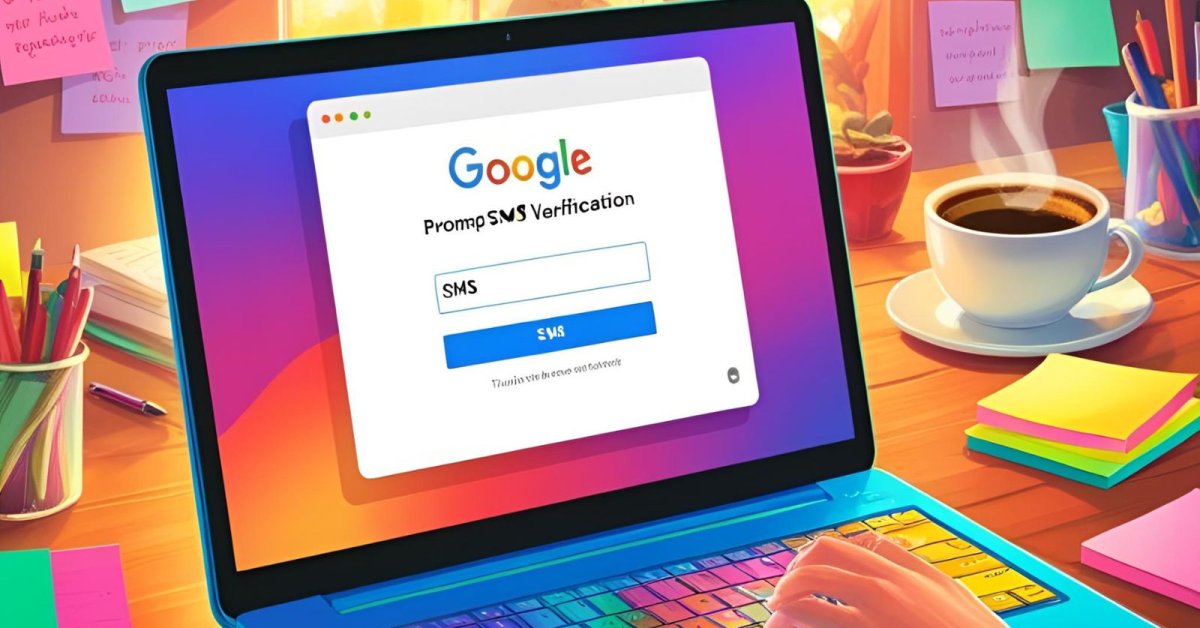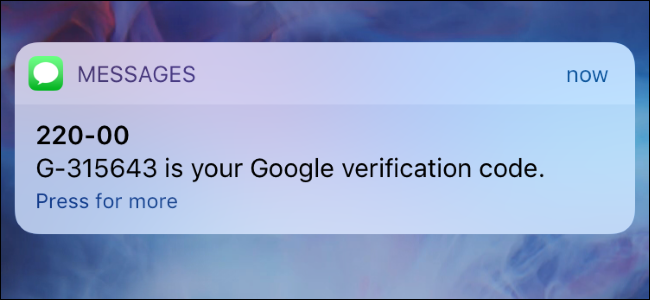Google to Phase Out SMS-Based Authentication Codes
admin - Feb 25, 2025

Google is set to discontinue authentication and account recovery via SMS verification codes.
- Google Offers Voluntary Buyouts to US Employees Amid AI Push
- Google SynthID: Everything You Need to Know About AI Content Detection
- NotebookLM Mobile App: Enterprise AI Capabilities Now Available on iOS and Android
Whenever users forget their Google account password, they are presented with several familiar account recovery options. However, one of these options is soon to disappear.
In an exclusive conversation with a Google insider, cybersecurity writer Davey Winder uncovered surprising news: Google is set to discontinue authentication and account recovery via SMS verification codes.

The Shift Away from SMS Authentication
The technology industry is gradually transitioning from traditional passwords to passkeys. This means moving away from character-based passwords to authentication methods secured by PINs or biometric verification, such as facial recognition and fingerprint scanning.
Gmail spokesperson Ross Richendrfer confirmed the change, stating: “Just as we aim to move beyond passwords with technologies like passkeys, we also want to eliminate SMS-based authentication.” Google plans to replace SMS verification with QR codes to minimize the global misuse of SMS.
Currently, Google uses SMS verification for two purposes: security and abuse prevention. Richendrfer explained that, in terms of security, SMS authentication helps Google confirm it is interacting with the correct user. On the other hand, the abuse prevention mechanism prevents malicious actors from exploiting Google’s services.
Cybercriminals have been known to create thousands of fraudulent Gmail accounts to spread spam and malware, making SMS-based verification a critical tool in preventing abuse.
Why Google Is Ending SMS-Based Authentication
According to Richendrfer and his team, SMS verification codes come with inherent risks. Attackers can steal user identities, users may lose access to their phones, and the security of SMS codes depends on the reliability of mobile service providers.
“If a hacker tricks a mobile carrier into transferring a victim’s phone number to their device, the security value of SMS authentication is completely lost,” Richendrfer explained.

Additionally, SMS authentication has become a key component in certain fraudulent schemes. Over the past few years, Google has tracked and identified a scam known as “traffic pumping.” This method, previously referred to as traffic inflation or toll fraud, involves cybercriminals manipulating online services to send large volumes of SMS messages to phone numbers under their control. The attackers then collect fees each time a message is sent.
Upcoming Changes
“In the coming months, we will introduce a new approach to phone-based authentication,” Richendrfer stated. “Instead of entering a phone number and receiving a six-digit SMS code, users will see a QR code that they must scan with their phone’s camera.”

Google has outlined several security benefits of QR code authentication:
- Reduced phishing risk: Since users will no longer receive a security code, they cannot be tricked into sharing it with cybercriminals.
- Less reliance on mobile carriers: While not a solution for all cases, this change will reduce users’ dependency on network providers for security.
“SMS-based verification codes pose significant risks to users,” a Google spokesperson concluded. “We’re excited to introduce an innovative new method that enhances security and minimizes exposure to cyber threats.”
While Google has not yet announced an official phase-out date for SMS verification codes, this shift is expected to be widely welcomed by users.
Featured Stories

ICT News - Feb 15, 2026
X Platform Poised to Introduce In-App Crypto and Stock Trading Soon

ICT News - Feb 13, 2026
Elon Musk Pivots: SpaceX Prioritizes Lunar Metropolis Over Martian Colony

ICT News - Feb 10, 2026
Discord's Teen Safety Sham: Why This Data Leak Magnet Isn't Worth Your Trust...

ICT News - Feb 09, 2026
PS6 Rumors: Game-Changing Specs Poised to Transform Console Play

ICT News - Feb 08, 2026
Is Elon Musk on the Path to Becoming the World's First Trillionaire?

ICT News - Feb 07, 2026
NVIDIA's Gaming GPU Drought: No New Releases in 2026 as AI Takes Priority

ICT News - Feb 06, 2026
Elon Musk Clarifies: No Starlink Phone in Development at SpaceX

ICT News - Feb 03, 2026
Elon Musk's SpaceX Acquires xAI in Landmark $1.25 Trillion Merger

ICT News - Feb 02, 2026
Google's Project Genie: Premium Subscribers Unlock Interactive AI-Generated Realms

ICT News - Dec 25, 2025
The Visibility Concentration Effect: Why Half the Web Isn’t Qualified Anymore
Read more

Mobile- Feb 14, 2026
Android 17 Beta 1 Now Available for Pixel Devices
While Android 17 Beta 1 doesn't introduce flashy consumer-facing changes yet, it lays the groundwork for a more robust and flexible platform.

Mobile- Feb 12, 2026
What is the Most Powerful Gaming Phone Currently?
The Nubia Red Magic 11 Pro is the undisputed most powerful gaming phone right now, blending record-breaking benchmarks, unbeatable cooling, and gamer-centric design for peak performance that lasts.

ICT News- Feb 13, 2026
Elon Musk Pivots: SpaceX Prioritizes Lunar Metropolis Over Martian Colony
While Mars enthusiasts may feel a temporary setback, the lunar focus could ultimately fortify humanity's multi-planetary future.

ICT News- Feb 15, 2026
X Platform Poised to Introduce In-App Crypto and Stock Trading Soon
X has been laying the groundwork for this expansion.
Comments
Sort by Newest | Popular